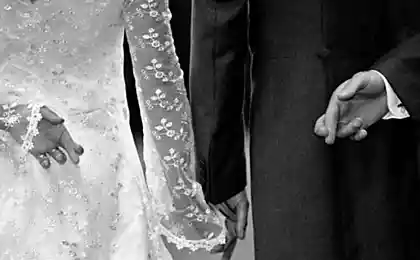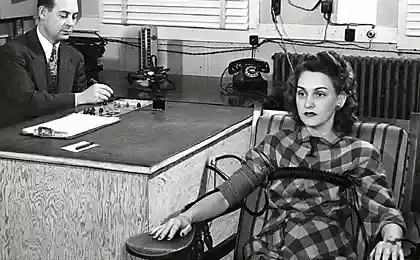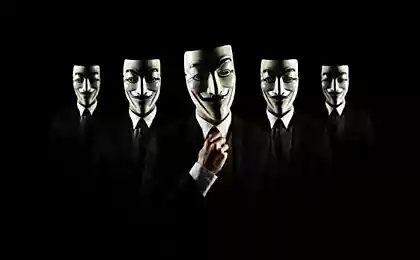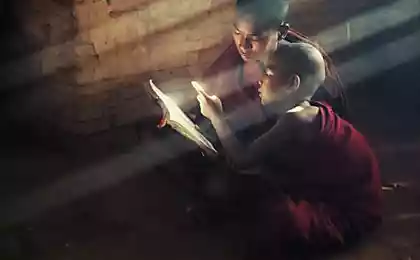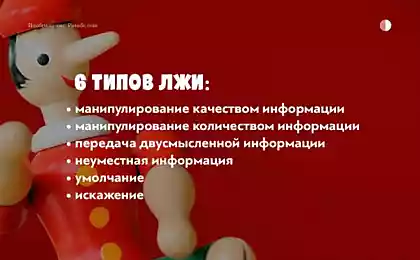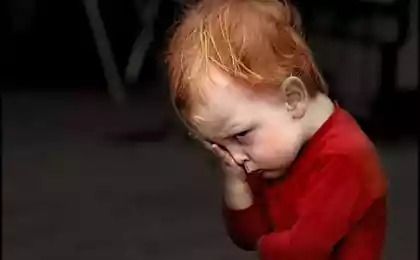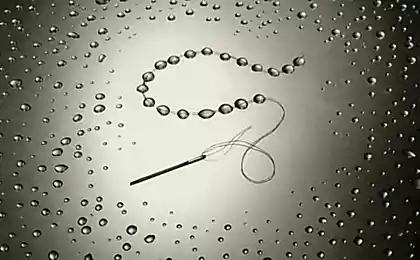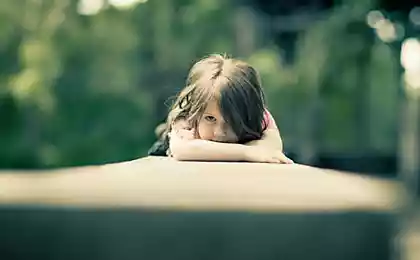198
Truth or falsehood is not so much a matter of morality. . .
When our children begin to lie to us, for most adults, it is a signal to attack in the fight for truth and honesty. The child who defrauds us is subjected to successively or arbitrarily:
And the saddest thing is that parents are absolutely convinced that the child himself is to blame for the lie, and his “vicious” behavior must be eradicated immediately.
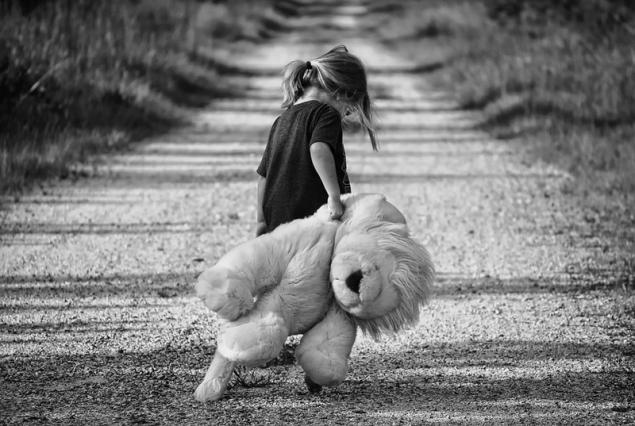
It is important to understand that childish lies, Most often (with the exception of a certain mental pathology) These are the consequences of the wrong parent-child relationship.. And so, first of all, parents should ask themselves, “What are we doing wrong?” and at least try to look at this incident as a symptom.
When a child has nothing to hide? When he understands, guesses, and even better knows from his own experience that no matter what he shares with his close adults, he will receive help, support, explanation. He will not be attacked with accusations, insults, he will not begin to apply various punitive sanctions, and above all, he will be stopped if he violated some rules and laws, try to listen, understand. He will be helped to deal with what he has done, and together they will be able to realize what guided the child in a difficult situation for him, help to atone for guilt or correct a mistake.
Accusation and shame usually make things worse. Because in response to overreaction, you want to hide even more carefully. When a child regularly or at least several times in a row met with an inadequate reaction of the parent, he is forced to hide what happened not only in order to “hide from punishment”, but also in order to somehow cope with the stress that he is forced to experience alone. After all, at least he will not have to answer for the feelings of his parent who fell into affect. That is, to everything that happened to him, to process the consequences of his appeal for help, in many ways excessive, and not helping him to understand himself.
I tell parents who resent lying to their children: “Children are lying to the wall.”. It means that your relationship is such that he can’t tell you the truth because he knows it will only get worse. And scolding a child just for trying to take care of himself is at least short-sighted, especially if he no longer hopes to see support and support in his parents in a difficult situation.
Most parents, in the Pharisaic way, in my opinion, wrap their children’s lies in a package of some strange morality. Of course, lies are lies. But adults often behave as if they themselves are always crystal honest, and never lie in situations where it is important for them to also save their face, it is scary to reveal some complicated truth or just do not want to share something unfavorable with everyone, to expose themselves in a disadvantageous light.
At the same time, the desire of their children to consider something as their personal affair, not to let anyone into their intimate space and not to devote those whom they do not trust to it, for some reason is considered a great “sin”. And the indignant exclamation of such a parent, “Do you not trust us?” is considered possible, although they themselves did absolutely nothing to build such trust. Especially if they did not respect his psychological and personal boundaries, did not understand, did not believe, did not give the opportunity to figure it out for themselves.
For obvious reasons, Most of all, they try to hide and deceive the children of overcontrolling parents.. Those for whom a thorough knowledge of the other is a necessary means of dealing with their own anxiety. Or those who are very afraid of childhood mistakes, and therefore they like to educate on the principle: “so that it was bad” and “so that once and for all remember”. . ?
They are the ones who are willing to uncover the truth. They turn out pockets, check desk drawers, read children's diaries and notes. And, alas, most often they do not understand, do not realize that this finally destroys trust, intimacy, destroys relationships, and makes the child only more skillfully lie, hide, keep the remains of important and intimate away from the parent’s eyes.
In such control and violation of borders there is no imaginary "good" for the child. There is no training in moral rules and norms, rather learning the opposite: how to defraud other people’s boundaries (i.e., get where you were not allowed), the parent’s exceptionally high anxiety and his unstoppable attempts to control and maintain parental authority, which he has already lost along with the loss of trust.
If you want your child to share their experiences or events with you, then you should learn to understand them, help them deal with what happened, and not hide your significant own experiences from them. At the same time, it is important to be careful and tell the truth, formulate it in a form that the child will be able to perceive and digest in accordance with his age.
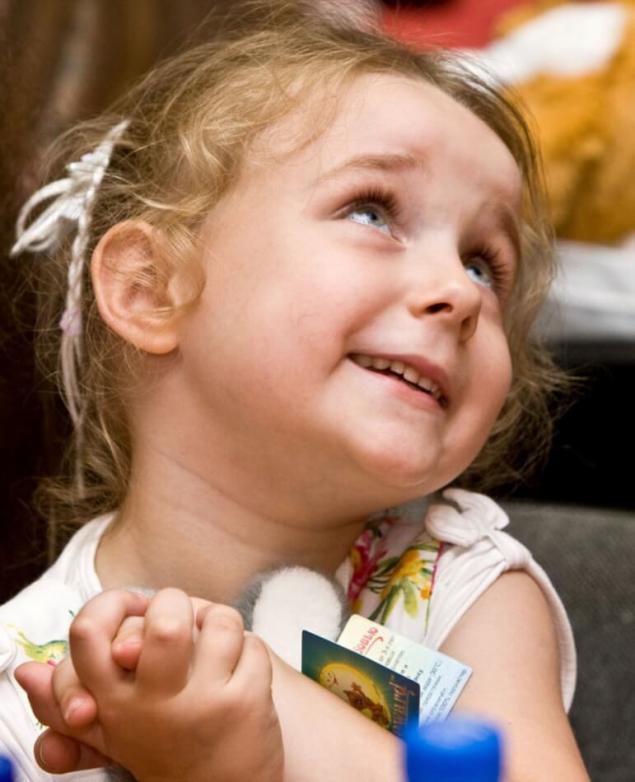
If you’re divorcing, it’s important to tell your child as soon as possible. But do not devote it to the details of how “your daddy left us miserable and went to the young bitch” or other details of intimate life. It is worth telling him that the parents will now live apart, because their relationship has ended, they have ceased to love each other. But they both love him very much and will always love him because he is their child. He will visit his other parent in his other home or family. It is also important to say that the child is not to blame for this breakup and it is their adult decision.
It is also worth talking to the child about other significant events in the family, the death of loved ones, their illnesses, and upcoming changes. We can not hide our feelings, but tell the child that we will cope with our experiences. “Your grandmother died, we’re all very sad and crying, we’ll miss her, but we’ll get through it.” "Your grandfather is in the hospital, he's going to have a major operation, we're all very worried, we're very worried, but we really hope everything goes well."
This is a common parental illusion that if a child does not know about some events and experiences in the family, then he is so safer. In fact, children always feel the emotional field of the family, especially when someone is crying, upset, tense, in grief. He does not know how to explain it, interpret it, and, depending on his picture of the world, explains it in his own way. And very often in darker colors than it really is. For example, “Grandma went somewhere, I must have been bad.” “My parents divorced because of me because I didn’t obey.”
So interesting. Simple Ways to Help Your Child Deal With Anger
How to Set Boundaries Without Harming Children
So truth or falsehood is not a matter of morals, it’s a matter of respect, trust, and being able to see the other person as truly close.
Author: Irina Mlodik
P.S. And remember, just by changing your consciousness – together we change the world!
Source: im.appme.ru/text/616/
- interrogation,
- shame,
- pressure,
- threats,
- Actively trying to find out “the whole truth.”
And the saddest thing is that parents are absolutely convinced that the child himself is to blame for the lie, and his “vicious” behavior must be eradicated immediately.

It is important to understand that childish lies, Most often (with the exception of a certain mental pathology) These are the consequences of the wrong parent-child relationship.. And so, first of all, parents should ask themselves, “What are we doing wrong?” and at least try to look at this incident as a symptom.
When a child has nothing to hide? When he understands, guesses, and even better knows from his own experience that no matter what he shares with his close adults, he will receive help, support, explanation. He will not be attacked with accusations, insults, he will not begin to apply various punitive sanctions, and above all, he will be stopped if he violated some rules and laws, try to listen, understand. He will be helped to deal with what he has done, and together they will be able to realize what guided the child in a difficult situation for him, help to atone for guilt or correct a mistake.
Accusation and shame usually make things worse. Because in response to overreaction, you want to hide even more carefully. When a child regularly or at least several times in a row met with an inadequate reaction of the parent, he is forced to hide what happened not only in order to “hide from punishment”, but also in order to somehow cope with the stress that he is forced to experience alone. After all, at least he will not have to answer for the feelings of his parent who fell into affect. That is, to everything that happened to him, to process the consequences of his appeal for help, in many ways excessive, and not helping him to understand himself.
I tell parents who resent lying to their children: “Children are lying to the wall.”. It means that your relationship is such that he can’t tell you the truth because he knows it will only get worse. And scolding a child just for trying to take care of himself is at least short-sighted, especially if he no longer hopes to see support and support in his parents in a difficult situation.
Most parents, in the Pharisaic way, in my opinion, wrap their children’s lies in a package of some strange morality. Of course, lies are lies. But adults often behave as if they themselves are always crystal honest, and never lie in situations where it is important for them to also save their face, it is scary to reveal some complicated truth or just do not want to share something unfavorable with everyone, to expose themselves in a disadvantageous light.
At the same time, the desire of their children to consider something as their personal affair, not to let anyone into their intimate space and not to devote those whom they do not trust to it, for some reason is considered a great “sin”. And the indignant exclamation of such a parent, “Do you not trust us?” is considered possible, although they themselves did absolutely nothing to build such trust. Especially if they did not respect his psychological and personal boundaries, did not understand, did not believe, did not give the opportunity to figure it out for themselves.
For obvious reasons, Most of all, they try to hide and deceive the children of overcontrolling parents.. Those for whom a thorough knowledge of the other is a necessary means of dealing with their own anxiety. Or those who are very afraid of childhood mistakes, and therefore they like to educate on the principle: “so that it was bad” and “so that once and for all remember”. . ?
They are the ones who are willing to uncover the truth. They turn out pockets, check desk drawers, read children's diaries and notes. And, alas, most often they do not understand, do not realize that this finally destroys trust, intimacy, destroys relationships, and makes the child only more skillfully lie, hide, keep the remains of important and intimate away from the parent’s eyes.
In such control and violation of borders there is no imaginary "good" for the child. There is no training in moral rules and norms, rather learning the opposite: how to defraud other people’s boundaries (i.e., get where you were not allowed), the parent’s exceptionally high anxiety and his unstoppable attempts to control and maintain parental authority, which he has already lost along with the loss of trust.
If you want your child to share their experiences or events with you, then you should learn to understand them, help them deal with what happened, and not hide your significant own experiences from them. At the same time, it is important to be careful and tell the truth, formulate it in a form that the child will be able to perceive and digest in accordance with his age.

If you’re divorcing, it’s important to tell your child as soon as possible. But do not devote it to the details of how “your daddy left us miserable and went to the young bitch” or other details of intimate life. It is worth telling him that the parents will now live apart, because their relationship has ended, they have ceased to love each other. But they both love him very much and will always love him because he is their child. He will visit his other parent in his other home or family. It is also important to say that the child is not to blame for this breakup and it is their adult decision.
It is also worth talking to the child about other significant events in the family, the death of loved ones, their illnesses, and upcoming changes. We can not hide our feelings, but tell the child that we will cope with our experiences. “Your grandmother died, we’re all very sad and crying, we’ll miss her, but we’ll get through it.” "Your grandfather is in the hospital, he's going to have a major operation, we're all very worried, we're very worried, but we really hope everything goes well."
This is a common parental illusion that if a child does not know about some events and experiences in the family, then he is so safer. In fact, children always feel the emotional field of the family, especially when someone is crying, upset, tense, in grief. He does not know how to explain it, interpret it, and, depending on his picture of the world, explains it in his own way. And very often in darker colors than it really is. For example, “Grandma went somewhere, I must have been bad.” “My parents divorced because of me because I didn’t obey.”
So interesting. Simple Ways to Help Your Child Deal With Anger
How to Set Boundaries Without Harming Children
So truth or falsehood is not a matter of morals, it’s a matter of respect, trust, and being able to see the other person as truly close.
Author: Irina Mlodik
P.S. And remember, just by changing your consciousness – together we change the world!
Source: im.appme.ru/text/616/
Zone Zakharyin-Ged: the relationship of internal organs with certain parts of the skin
Audi introduced for sale in Russia-in hybrid version of the Q5






